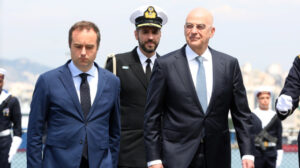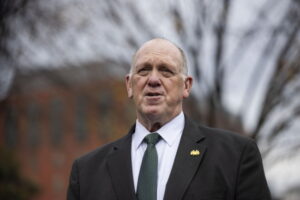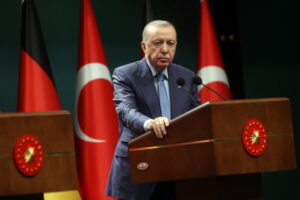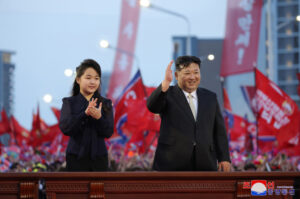The official visit of French Minister of the Armed Forces, Sébastien Lecornu, to Greece today included key bilateral matters and multiple messages aimed at neighboring countries. Lecornu held early morning meetings with his Greek counterpart, Nikos Dendias, and Prime Minister Kyriakos Mitsotakis.
“Greece is always confident that France will consider our national security in its decision-making, as well as the need for Greece to maintain a technological edge in deterrence against revisionist forces. It is well known—we have never hidden it—Greece does not threaten but is threatened,” said Dendias. He added, “Given the strategic significance of the 2021 Agreement, I believe bilateral discussions for its renewal should begin.”
In the same vein, Dendias stated, “Greece values France’s vital contribution to consultations, and its leading role in building a common European defense framework. We agree that we must reduce our dependencies on third parties, especially those whose reliability is questionable when it comes to our strategic national interests,” he added, with clear reference to Ankara.
The Defense Minister also hinted at the potential expansion of the bilateral defense agreement in terms of armaments: “We already have a strong partnership, demonstrated by the acquisition of the three Belharra frigates and the ongoing discussions for a fourth, the procurement of Rafale fighter jets—which with their armaments are key for deterrence and defense in the Aegean and Eastern Mediterranean. Additionally, moments ago, in your presence, a bilateral contract was signed for the purchase of 16 EXOCET missiles, and the agreement for advanced NH-90 helicopters is already underway.”
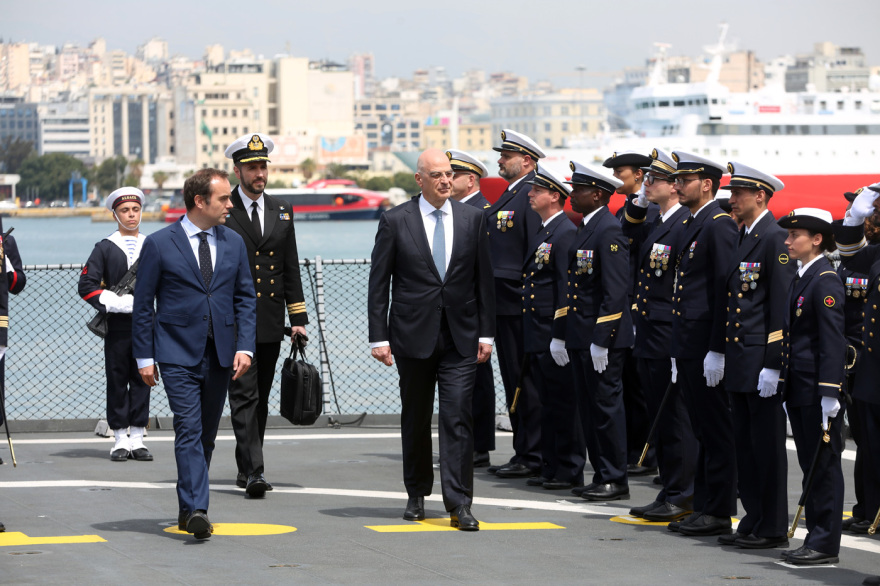
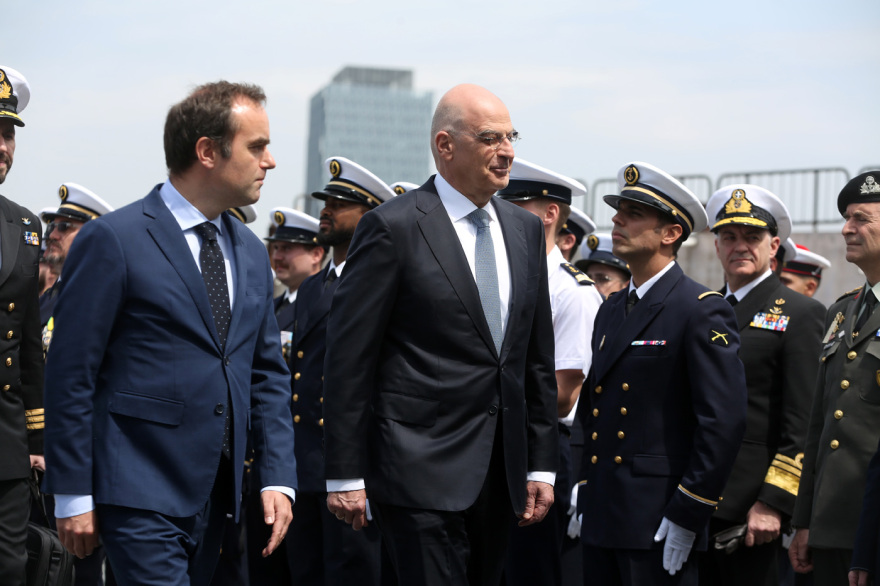
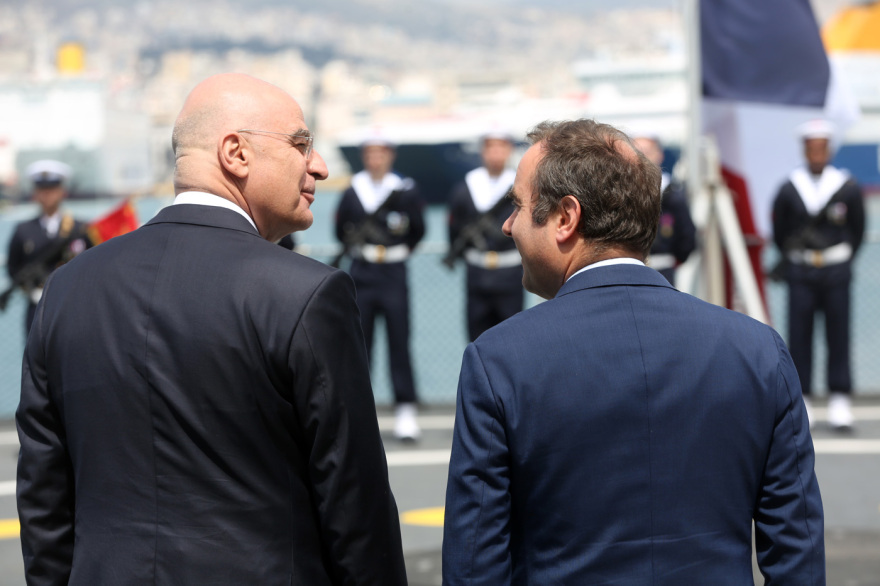
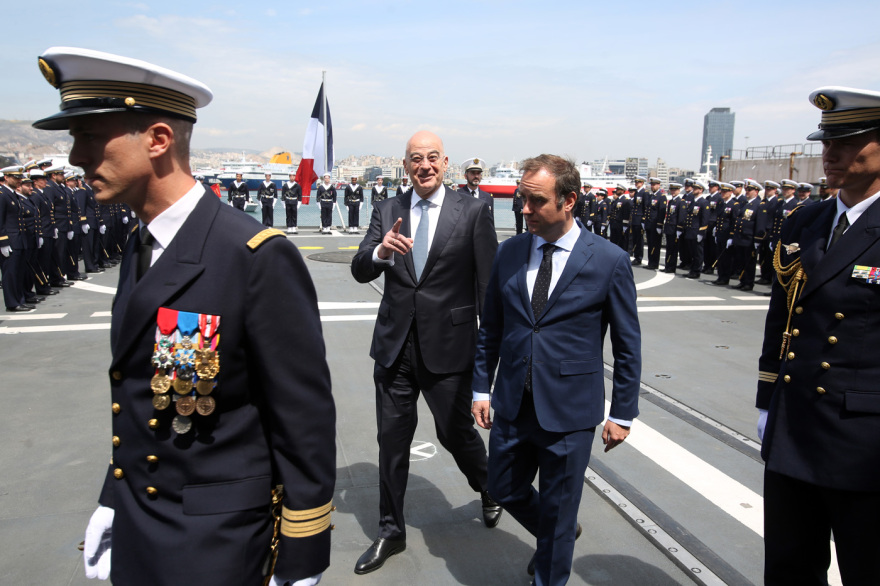
After the private meeting between the two Ministers at the Ministry of National Defence, extended talks were held between the Greek and French delegations.
Present at the talks were the Deputy Minister of National Defence, Thanasis Davakis; the Chief of the Hellenic National Defence General Staff, General Dimitrios Choupis; the Secretary General of the Ministry of National Defence, Antonios Oikonomou; the Chief of the Hellenic Army General Staff, Lieutenant General Georgios Kostidis; the Chief of the Hellenic Navy General Staff, Vice Admiral Dimitrios–Eleftherios Kataras; and the Chief of the Hellenic Air Force General Staff, Lieutenant General (AF) Dimosthenis Grigoriadis.
At the start of the bilateral discussions between the delegations, the Minister of National Defence welcomed his French counterpart with the following remarks:
“Honourable Minister, it is with great pleasure that I welcome you and your delegation today to the Ministry of National Defence of Greece.
We have already held a private discussion, and we will now delve further, along with our delegations, into enhancing our defence relations and strategic cooperation—both within the framework of NATO and within the European Union.
There is no need to repeat that our two countries are united by common struggles and shared values—freedom, human rights, democracy, the peaceful resolution of disputes, and full respect for the rule of law.
Moreover, as you well know, our Agreement—our Strategic Agreement with France—which I had the honour to negotiate and sign on behalf of the Prime Minister, is, for us, one of the cornerstones of our national defence.
It is therefore very important to have an honest exchange of views, especially at a time when international stability is under threat. I believe this can foster a sense of security and stability more broadly in the Eastern Mediterranean.
I would like to welcome you once again and say that I look forward to our discussions with our delegations immediately afterwards.”
Following the meeting, in the presence of both Ministers, a signing ceremony took place for the Intergovernmental Agreement on the procurement of 16 EXOCET guided missiles.
The agreement was signed by the General Director of the General Directorate for Defence Investments and Armaments (GDDIA), Lieutenant General Ioannis Bouras, and the representative of MBDA (Matra-BAE-Dynamics-Alenia), Annie Kristina Ramon.
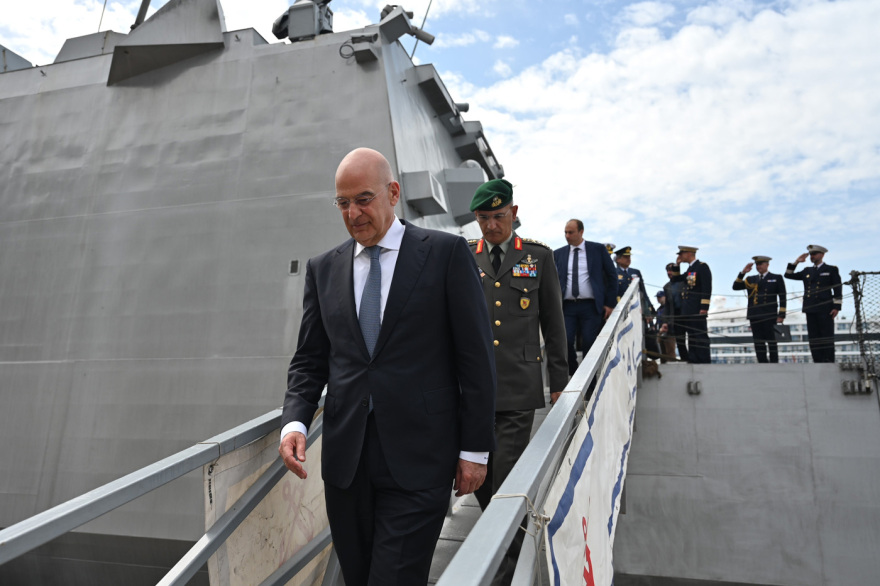
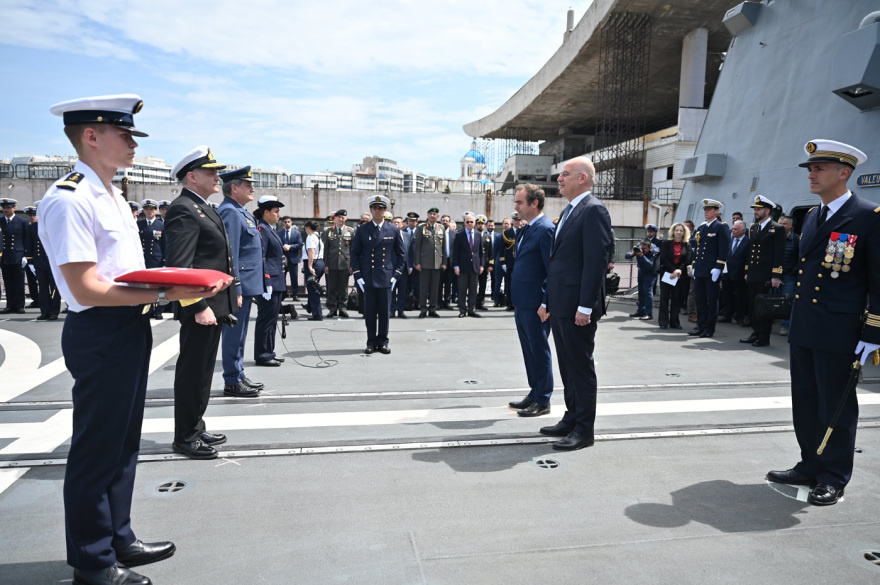
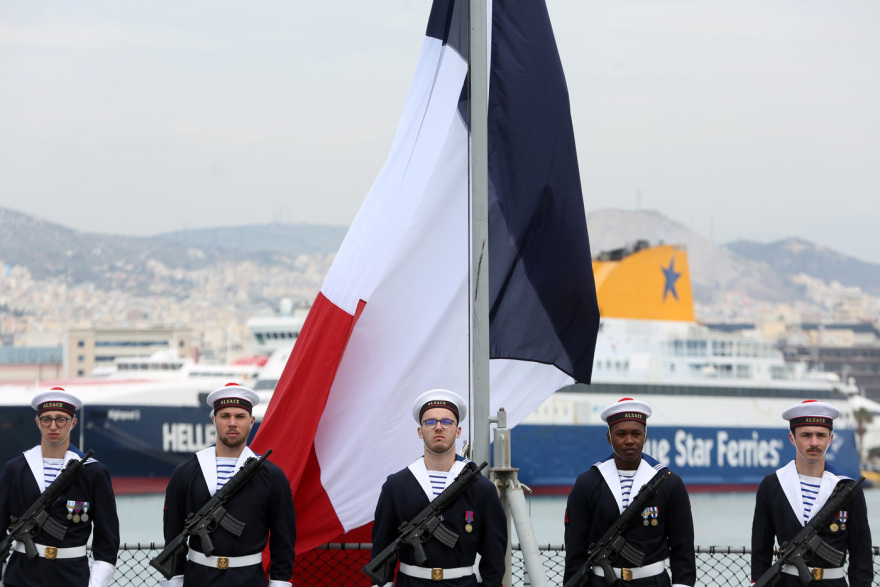
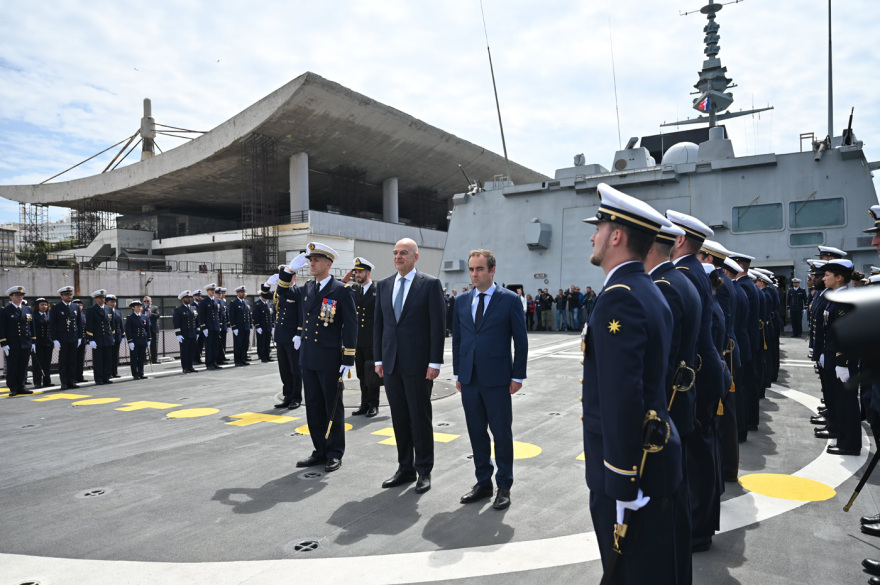
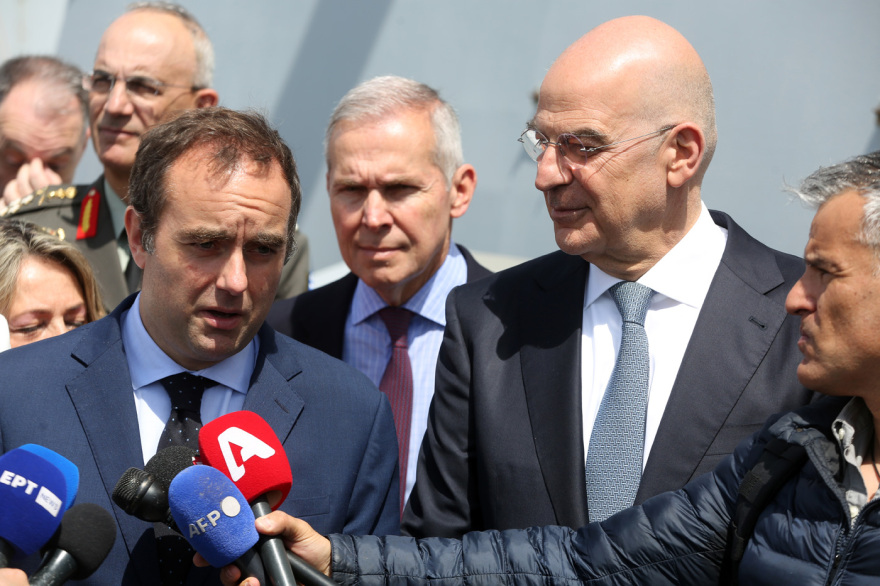
Joint Statements by the Two Ministers of Defence Followed
Mr. Dendias stated:
“Minister, dear friend Sébastien, I am very pleased to welcome you today to Athens. A short while ago, we concluded our discussions in a warm atmosphere, touching upon matters of mutual interest, as part of the frequent meetings we have held over the past few years—meetings that are reinforced by Articles 1 and 4 of the Strategic Agreement we signed.
Today we had a productive, sincere, and friendly meeting, within the framework of our long-standing traditional ties, shared values, mutual trust, and respect—including the personal bond between us.
And of course, we reaffirmed the obvious: that Greece and France are close allies and friends, sharing a common perspective on developments in Europe and our broader region.
I must mention the highlight of our bilateral relations: the signing in 2021 of the Bilateral Strategic Partnership Agreement for defence and security cooperation—a historic agreement. I had the honour, on the instructions of Prime Minister Mitsotakis, to negotiate and sign it.
Article 2 of the Agreement guarantees the sovereignty and territorial integrity of both our nations, as well as our shared interests.
Greece has always been confident that France will take into account Greece’s security in its decisions and the need for Greece to maintain a technological deterrent advantage over revisionist powers. It is well known and undisputed that Greece does not threaten but is threatened.
Given the strategic importance of the 2021 Agreement, I also believe it is time to begin bilateral talks on its renewal.
Today, we had the opportunity to discuss our cooperation in security, defence, and the defence industry.
Our cooperation is already strong. This is reflected in the acquisition of three Belharra frigates and the ongoing discussion for a fourth, as well as the Rafale jets, whose armaments are key to deterrence and defence in the Aegean and the Eastern Mediterranean.
Additionally, just moments ago, you witnessed the signing ceremony for the Intergovernmental Agreement for the procurement of 16 EXOCET missiles, and the implementation of our contract for the advanced NH-90 helicopters is already underway.
These ongoing programs, I believe, are fostering a shared strategic culture and outlook.
Furthermore, close cooperation has begun in the field of innovation.
The 1st Franco-Hellenic Defence Innovation Symposium, held in Athens in December 2024, served that purpose.
As you know, we have invited France to participate in this innovation effort and in the path toward “Agenda 2030.”
We participate together in joint missions—ASPIDES being one of them.
Shortly, we will visit the frigate ‘ALSACE,’ which conducted exercises alongside vessels from the operation.
We also discussed European Defence Cooperation and the European Defence Industry.
Greece values France’s significant contribution to the consultations and its leading role in creating a common European environment, as we agree that dependencies on third parties must be reduced.
We must also reduce funding to those third parties—particularly those acting in ways of questionable reliability regarding the strategic interests of our country.
We discussed the ReArm Europe plan, which Greece considers an important foundation—though one that still requires further discussion.
We have agreed on the need to coordinate our efforts and thinking with France to encourage investment from EU Member States.
I also shared our views on the proposed SAFE Regulation. I must reiterate: in view of the upcoming negotiations, the security interests of all EU Member States must be fully respected.
There must be clear eligibility criteria. We believe both qualitative and quantitative standards are essential: cooperation should include partners that share the EU’s principles and values and meet at least a minimum threshold of alignment with the EU’s Common Foreign and Security Policy (CFSP).
I cannot understand how countries with only 1%, 2%, 5%, or 7% compliance with the CFSP can be allowed to participate in SAFE.
I would also like to acknowledge France’s efforts to strengthen European Defence and upgrade Europe’s capabilities. We are fully prepared to collaborate with France in this effort. We share the French view on the need to continue strengthening ties with Washington and cooperating with NATO for the protection of Euro-Atlantic security.
We also align with France on the importance of supporting full implementation of the Action Plan for the Southern Neighbourhood.
We had the opportunity to discuss several issues: Ukraine, the Aegean, the Eastern Mediterranean, the Middle East, North Africa, and the Sahel. The last two topics we will continue discussing over lunch aboard the frigate “ALSACE.”
I also briefed Sébastien on my recent trip to Lebanon and the Greek Government’s decision to support the Lebanese Armed Forces. In this matter, however, we seek France’s cooperation and shared vision.
We spoke about Syria. I emphasized the need to protect all ethnic and religious communities. I made extended reference to the Christian community.
Dear Sébastien, in the Eastern Mediterranean and beyond, France has been a protector of Greece, and we deeply appreciate your continued support in defending our territorial integrity and promoting stability in the region. Together, we can continue to build a stronger, safer, and more prosperous future. Thank you very much.”
At noon, the two Ministers jointly visited the French frigate “ALSACE” at the Port of Piraeus, where they were briefed on its mission.
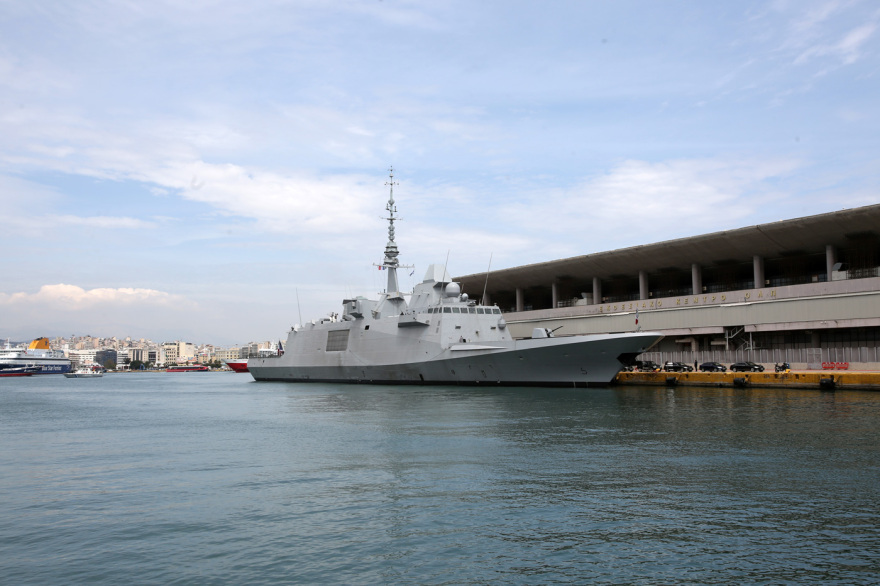
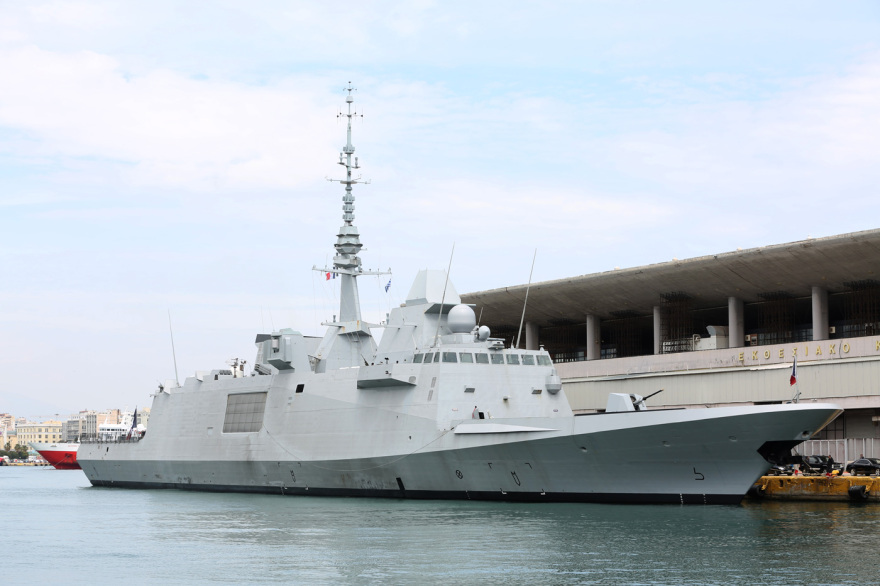

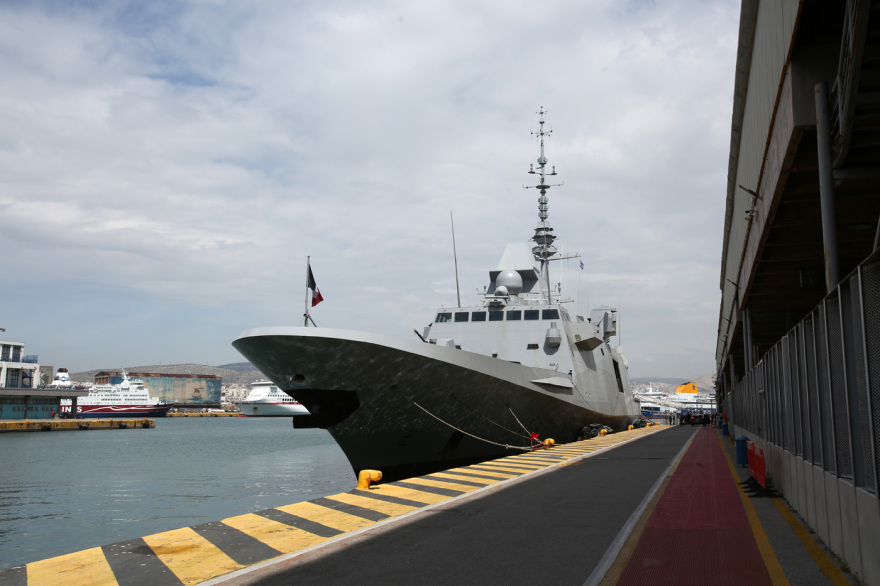
In a statement, Mr. Dendias emphasized:
“It is a great pleasure and honor for me, and I would like to thank the French Minister, Sébastien Lecornu, for the invitation to visit the frigate ALSACE and also to be briefed on its operations in the Red Sea.
As you know, these operations were conducted under Greek command as part of Operation ASPIDES. Under the leadership of Rear Admiral Gryparis, and during this command, the frigate ALSACE managed to intercept both ballistic missiles and Houthi drones—something that is highly significant for the freedom of navigation.
As you are aware, freedom of navigation is something of enormous importance not only for Greece but also for the EU and for France, a major naval power. It affects the standard of living of its citizens—it affects the quality of life of European citizens. And it is very important that Greece, France, and other friendly nations mentioned earlier by the Minister—such as Cyprus and Italy—are contributing to this common effort to protect the standard of living of European citizens.
I must also say that I feel extremely comfortable being aboard a French warship—not only because of the exceptional hospitality we Greeks are enjoying from the captain and the crew, not only because of the warmth of our relationship, which is evident to all, but also because I see our cooperation with the French Navy, and more broadly between the Greek and French Armed Forces, being built on increasingly solid foundations.
The procurement of the three Belharra frigates—and the fourth, for which I hope the Government Council for Foreign Affairs and Defence (KYSEA) will approve my proposal—will, I believe, further deepen the scope of cooperation between our navies. Together with the RAFALEs, I believe that Greece and the French Republic now share a broad range of systems that we can jointly use for the security of European citizens, and for the stability and safety of the Eastern Mediterranean.
France is a power that respects International Law. It respects the Law of the Sea, plays a leading role, and is the only nuclear power within the European Union—our common European family. And France’s support in the face of any threat to Greece is a very important factor for us.
I would therefore like to thank Sébastien, Minister Lecornu, for his presence today in Athens and in Piraeus, for the presence of the frigate ALSACE here in Piraeus, and for everything it symbolizes.”
Ask me anything
Explore related questions
